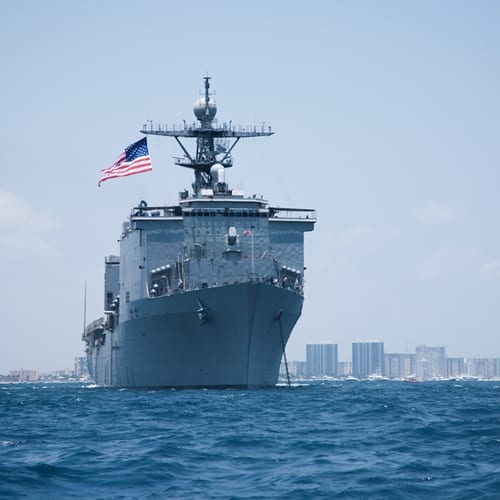How does marine insurance apply to new and novel crafts? A New Hampshire-based company called Juliet Marine Systems has developed a visually stunning vessel called Ghost which it hopes could offer benefits for military use. So far, however, the craft seems to have remained on the sidelines, despite its smooth, striking appearance and supposedly innovative technology.
According to the Associated Press, Ghost is intended to function as a kind of patrol ship for military maneuvers all over the world. The main body of the craft sits on top of two seaplane-like supports and could travel partially underwater through "supercavitation."
The ship, which has been in development for 14 years, would take a crew of three to operate but also theoretically accommodate 18 personnel and various weapons systems. In addition, Ghost can also be dismantled for easier transportation via military airplane.
The man behind JMS and Ghost, founder Gregory Sancoff, told the AP that he is struggling to get the Navy to consider using his craft, despite the millions of dollars invested in it.
"Any time you're building something so different, you're going to find people that just don't understand it. You've really got to spend some time understanding what's going on here," he said. He also admitted to some mild progress in the development of this project, stating that, "the Navy is pretty skeptical of what we've been working on but they're starting to take us more seriously."
If JMS succeeds in promoting this craft to military entities, those buyers will need to think about the general maritime insurance that they use to guarantee safety in the case that newer technology ends up breaking down. Even if not, it's a sign of the versatility that certain crafts can bring, which demands equally versatile insurance solutions.

